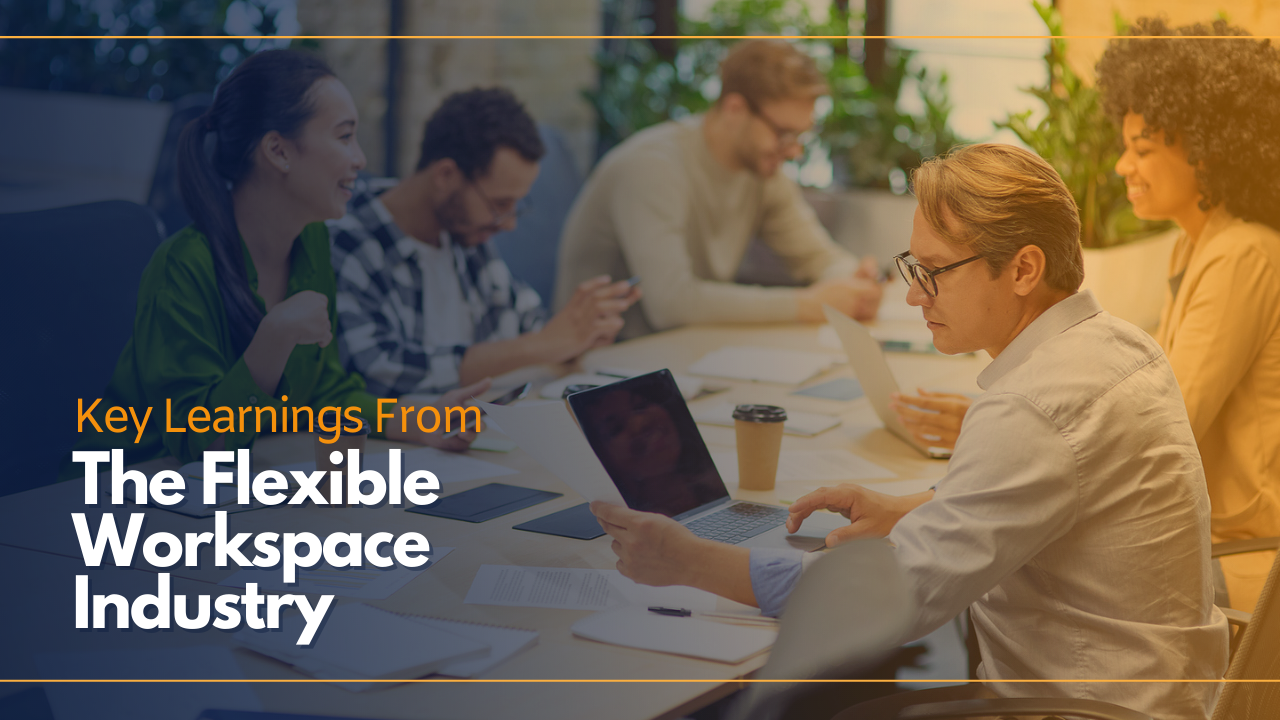- Robert Kropp continues his exploration of how flexible workspaces around the world have adapted and learned from the pandemic.
- In this article, Robert shares discussions with Use.Space, Venture X, repeople, and Cobalance Café.
- From changing membership plans to match new requirements, and refusing to compete on price, here’s how these coworking operators adapted to the events of 2020.
With closures still being felt in early 2021, it continues to be important to look back on 2020, what we learned, how we evolved, and how we continue to support members, organizations, customers, and employees across the workspace industry.
With the 4th part in this series, I wanted to focus on operators that have completely different circumstances, locations, and business models throughout our industry.
If you missed the first three articles in the series, checkout:
- Part 1 with GOOD SPACE, CoworkLand, VR Coworking powered by weXelwirken, SaltLabs
- Part 2 with OneCowork, Venture X, Creative Works
- Part 3 with Impact Hub, Work.Life, Spacemade
In this article, I have discussions with workspaces and organizations from England, the Canary Islands, and the United States.
TLDR Highlights:
1. Keep Everyone Connected Even When Remote
2. The Power of a Fringe Location
3. Memberships and Members are Changing
4. Flexible Workspace is More than an Office
5. WFH Success = The Right Setup
6. Flexibility to Choose Where We Work is Critical
7. Remote Work Increases Competition for Workspaces
8. Finding New Revenue Streams
9. Use the Lockdowns to Remodel if You Can / Need to
Here is what we learned and what’s next:
Use.Space in Manchester, England, UK
Having lived in Manchester, England for a number of months in 2018, it is always great to reconnect with people in the area and find new workspaces to chat with. Fortunately, I was able to connect to Sam Harratt at Use.Space.
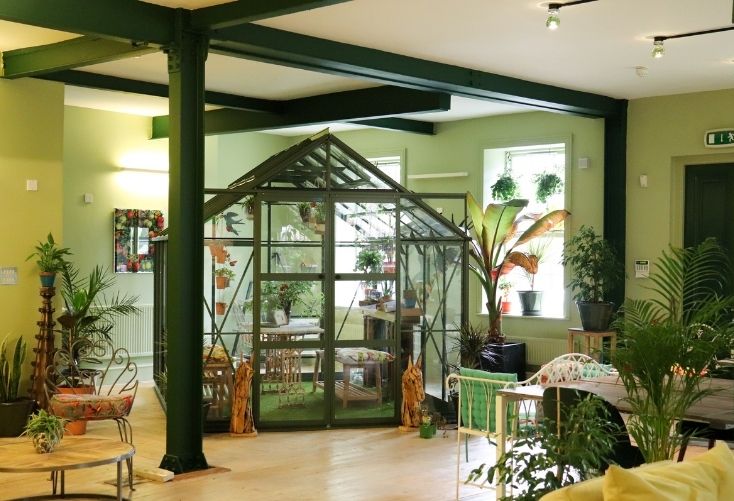
Use.Space is a family-owned workspace in the Ardwick part of Manchester. They have been open since the summer of 2019. This meant, according to Sam, that they were able to find their feet, grow membership, establish a core base of members, develop a culture and vibe, among many more positive things prior to the first lockdowns in 2020.
Key Learning During Lockdown: Although the lockdowns resulted in a loss of some revenue, they knew that they needed to keep the members and community connected and communicating. This meant Friday Brew Chats for whoever could join, an internal WhatsApp group, and many other member driven ways for everyone to bond and build social or even working relationships. At the same time, the staff at Use.Space would reach out to anyone they hadn’t heard from in a while to make sure they were doing well.
This approach seems to be adopting the best remote team practices to help people maintain mental health, improve their productivity, and even increase satisfaction / happiness.
All of these events and activities were meant to help members through the times of the lockdowns but also to keep the momentum of people working together for when the office reopened.
Key Learning Post Lockdown: At first members were hesitant about returning post lockdown. However, as Use.Space kept communicating they had made all the necessary precautions, the space slowly filled back up. Sam even said that the community was stronger than ever by the later half of 2020.
By the time of England’s 2nd lockdown in November of 2020, the space remained open. At this point, Sam said they became busier than ever from people who don’t work well at home or just wanted that occasional break from home.
Key Learning Post Lockdown: Their fringe (non city center but close) location became more of a positive than before. The building’s amenities and perks of parking, plenty of space, light, a nearby park, and being close enough to walk into the city center continued to help them attract and retain new members.
Like other spaces, the people and organizations looking for workspace continued to shift.
Key Learning Post Lockdown: Originally the primary clients were tech, creative, and design businesses along with other independent freelancers. The lockdowns hit this group hard, from which they lost a few members. However, by the end of the year this group was returning en masse and they were continuing to receive an increasing number of inquiries from larger organizations looking to place teams and even set up satellite offices within their space.
Future: Along with changing member needs, the memberships are continuing to change. Independents, instead of wanting dedicated desks, are looking for hot desks so they can come and go as needed. Everyone wants a rolling contract. Even with larger teams, they had to be creative and provide flexible options and spaces for groups of 6 – 8 team members to get together as needed. These spaces weren’t always fixed to the same people each time. The organization and team could decide who was in the space that day or the next.
Flexibility and having the option to support teams and members of all types and sizes will continue to be even more critical especially as SMEs, governments, and other larger organizations are legitimately looking at flexible workspace solutions as options.
As of the end of 2020, they hadn’t filled completely but were moving in that direction.
Future: Although they would love to open some new locations during 2021, their main focus is on a new Incubator program to nurture, develop, and support new and old businesses throughout the UK.
Sam gave a great example for why it is so powerful to have the option to work where and when you would like. One of their members who came back to the space recently said that “It is my slice of sanity.” Not everyone needs a workspace outside of their home but for many, having that option brings balance and helps them to remain productive and focused.
2021 Update: With the most recent lockdown in January, Use.Space is closed at the moment but is expecting to open back up as soon as possible. I expect them to continue to use what they have learned to keep members connected and support them in new and creative ways.
Venture X in San Antonio, Texas, USA
I had the pleasure to catch up with Gabe Ruiz at Venture X. He has been the Community Manager / Builder there throughout 2020 and actually used to be a member beforehand.
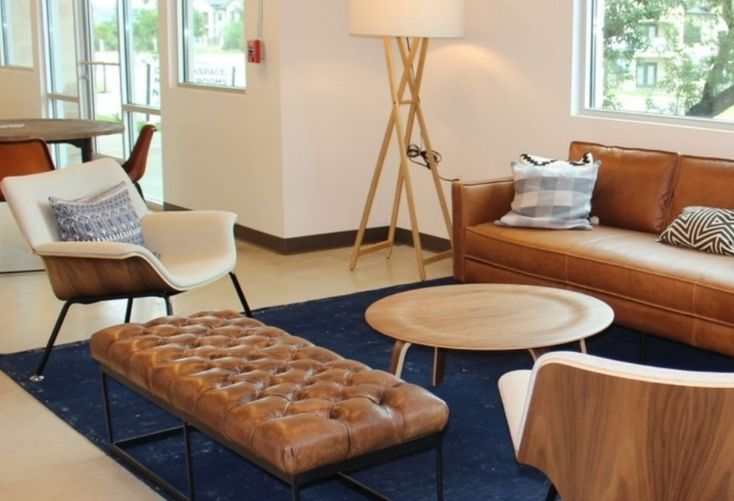
In San Antonio, they experienced one lockdown in March and April of 2020 which allowed only essential workers to work. However, post lockdown, people were generally still staying at home if they could. This ultimately resulted in few people in the space until after July.
Gabe did mention that they really focused on keeping people connected albeit at a distance during this time. What resulted was that many individuals and teams maintained their memberships even though anyone could pause or cancel their membership as needed.
Key Learning Post Lockdown: Since July, they have actually experienced more demand than ever. Most people have come from nearby although there are a number of people that still travel up to 30 minutes to the workspace. Gabe mentioned that “coworking is about choosing a location” with the amenities you need and the people you want to be around. “It is the difference between friends and family.” Family you are born into but then there is another type of bond when you choose your friends. The same can be said for a workspace that you choose.
Key Learning Post Lockdown: When a person selects their workspace, they often will be working closer to home and will have the time to come together in the space and hang out with other members.
Public events haven’t been possible during 2020. However, they have had some gatherings with small groups of members in the space.
Future: They hope, when allowed and safe, to start having smaller events that bring people in and showcase the space. For example, their first event will be focused on networking and will bring in a photographer to do headshots for people’s LinkedIn profiles. They want to educate more of the local community about their space, the safety measures, and the benefits of the interpersonal and social connection members have together.
repeople in the Canary Islands, Spain
I also had a great chat with Nacho Rodriguez, who is in the interesting position of being an advocate / promoter of the values of distributed work (repeople) from prior to the pandemic but also an owner / operator of coworking and coliving spaces in the Canary Islands.
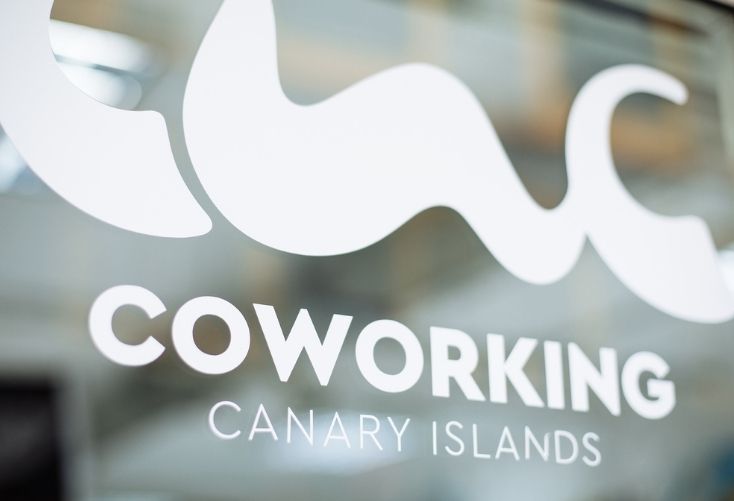
Nacho says that prior to the impacts of Covid-19, he used to have an office at his previous home that wasn’t ideal for work from home. This meant that each morning he would go in and work from one of his coworking or coliving workspaces.
However, once he moved into one of his coliving spaces during the pandemic, he says he was able to have much greater success working from home.
Key Learning: He realized that the key to success with WFH (work from home) was having the right setup. The key for him was having a home office that has plenty of light and maybe a view of the garden. Again, this all relates to personal preference.
However, he will be the first to tell you that he is definitely working harder than ever with long and intense weekdays and even more work during the weekends. Although at the same time, the productivity for him has been quite high.
Key Learning: At the same time that he has experienced success while working from home, his coworking and coliving spaces have stayed busy. Many people, just like him, are finding that having flexibility to choose where they work best is beneficial not only for that person but also the organizations they work with. This often will mean that people need or want to work from home some of the time and then work from an office or flexible workspace nearer to home the rest of the time.
With the Canary Islands being such a unique destination, the focus right now has also been on attracting more remote workers and ultimately businesses that come along to take advantage of the newly developing workforce.
Key Learning Post Lockdown: Nacho was part of a pop-up coliving and coworking experience that took over a resort. It was set up for remote workers to come and stay for a month to work and live out of. He says the experience was a positive one and is expecting to see further examples like this as many places continue to branch out of just a focus on tourism and more long term stays while working.
The Canary Islands government even put up 500k euros to market the islands as a great place to live and work over the long run.
Future: What we are seeing here is that as remote work becomes possible for more people and coliving, coworking, and flexible workspace options continue to grow, the competition and opportunity for remote workers as potential members will increase. This won’t only be locally in cities or rural areas but it will also include an increase in policy changes, and attention and resources by many governments in traditionally tourism focused regions to attract and retain these remote workers and businesses that can technically work anywhere.
Cobalance Café in London, England
Heading back to London, I had the pleasure to chat with Bhush Wadhwani who is running the Cobalance Café in East London.
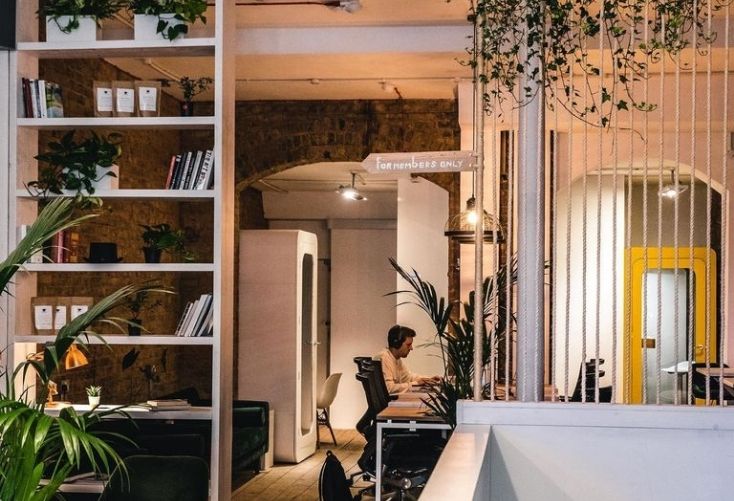
What makes their workspace quite unique is that they are one of the only pay as you go workspaces I have seen.
The idea originally was no hassle, no memberships, and no commitments. At the front of the space is a café for people to drop into, grab food, coffee, etc and then at the back is a more private coworking space.
After the first lockdown, they focused on how they could stay open to continue to support their members and nearby community.
Key Learning During Lockdown: Adapt, find new ways of generating revenue, and continue to find new ways to market to the local area. They started doing takeaway from the café and marketed to local workers which drove foot traffic and ultimately a large list of members.
By the time of the 2nd lockdown, it wasn’t as big of an issue. Their workspace could remain open and people working from home could continue to use the space. This meant that they continued to see even faster growth.
Key Learning: Flexibility in revenue. Not only do they have a café which is an essential store, they have a coworking space, event space, and are even looking at what other parts of the space could generate more revenue through additional services. Bhush has said that is the key for them to weather the challenges not only this past year, but to come.
Key Learning: Pay attention to market prices and changes. He noticed that some nearby competition was changing their prices. As a result they decided that during the lockdown, instead of competing over price, they should focus on adjusting and changing the ambiance of the space to differentiate and attract more members. Bhush said the lockdowns were the time, if you could, to make these improvements and changes. As a result, “the business can become even more sustainable and competitive over the long run.”
Bhush has many more plans for growth in the future and I look forward to seeing what new ideas he comes up with.
Looking Ahead
Thank you to Use.Space, Venture X, repeople, and Cobalance Café for partaking in my series on key learnings from the flexible workspace industry during 2020.
Although these organizations are quite different in mission, size, model, and location, it was interesting to see what they have experienced, and what they have done similarly and differently during a time of massive change.
As more people and organizations than ever are looking at coworking, space as a service, and other flexible workspace options as actual options, it is important for us to be agile, learn, and adapt to these changes.If you would like to chat about your workspace or organization’s experience this past year and outlook for the future, feel free to contact me directly.



 Dr. Gleb Tsipursky – The Office Whisperer
Dr. Gleb Tsipursky – The Office Whisperer Nirit Cohen – WorkFutures
Nirit Cohen – WorkFutures Angela Howard – Culture Expert
Angela Howard – Culture Expert Drew Jones – Design & Innovation
Drew Jones – Design & Innovation Jonathan Price – CRE & Flex Expert
Jonathan Price – CRE & Flex Expert
